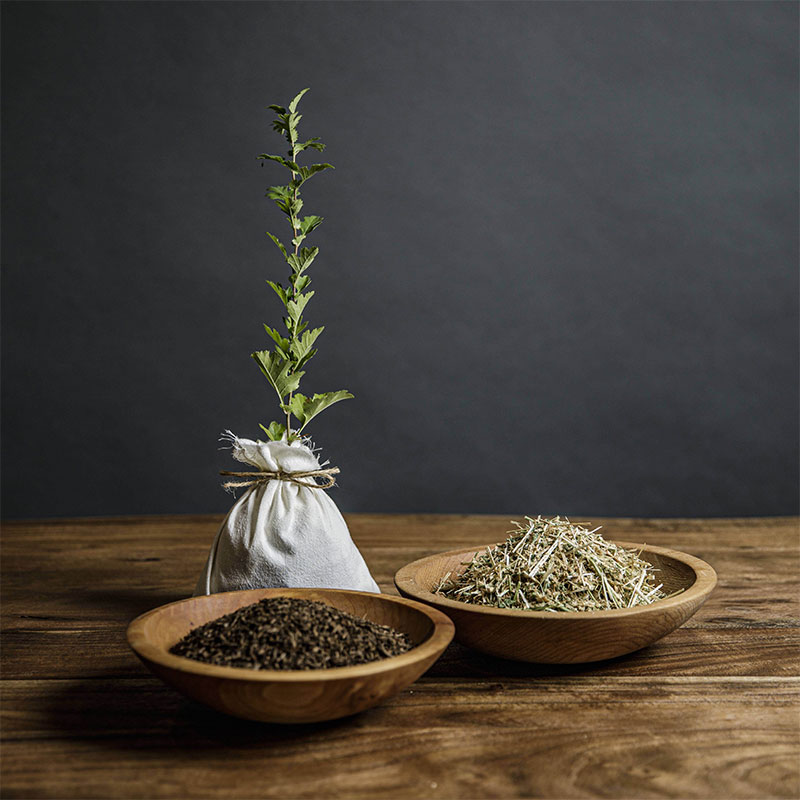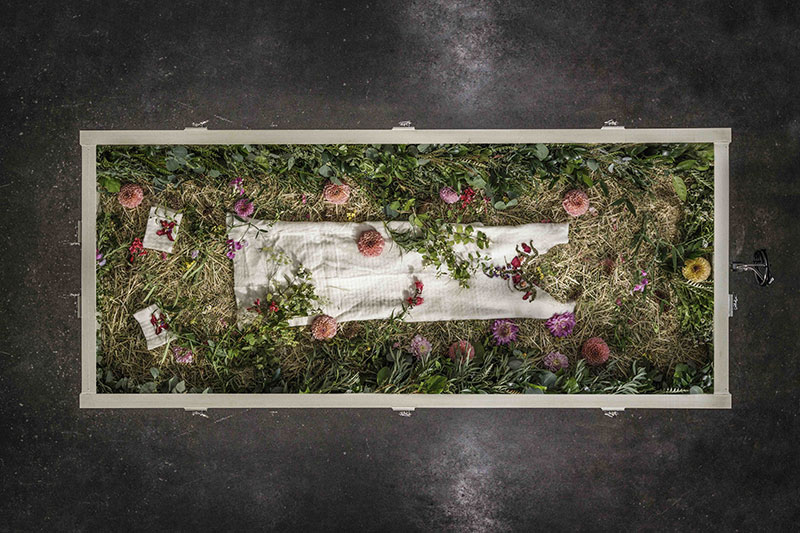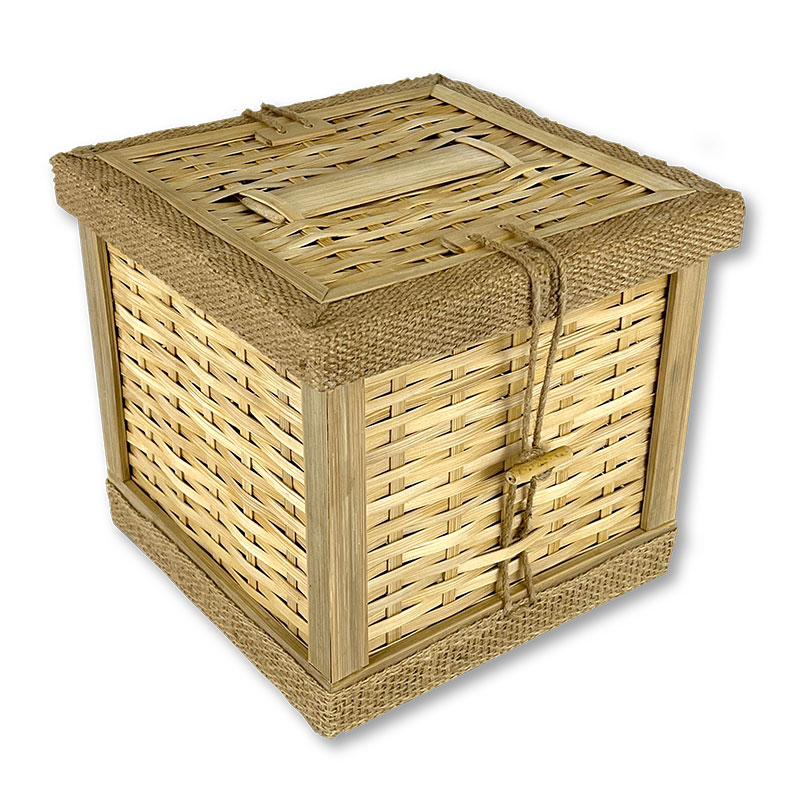Natural Organic Reduction
What is Natural Organic Reduction?
Natural Organic Reduction is defined as “the contained, accelerated conversion of human remains to soil.”
This process uses large tanks, containers, or similar vessels to hold human remains together with straw, wood chips, and/or other natural materials for a period of time of about four to six weeks.
The remains and organic materials, mixed together with warm air, are periodically turned and the composting process eventually results in reduction to a soil material.
When the process is complete the family of the deceased has the opportunity to receive the soil material, which is suitable for spreading in a garden, planting a special tree, or scattering in other meaningful locations such as a garden, memorial forest, or other special place.

Photo Credit: Return Home
Where is Natural Organic Reduction Available?

Natural Organic Reduction is currently only available in six states: Colorado, Washington, Oregon, Vermont, California and New York.
Although Natural Organic Reduction (NOR) is only legally available in six states, there are a number of states moving forward to legalize the practice.
More states including Rhode Island and Delaware are currently in the process of attempting to legalize NOR.
The NOR Vessel
Natural Organic Reduction takes place in a specialized vessel, usually custom and sometimes even hand-made to fit the purpose.
The body is placed inside the vessel, along with natural materials such as alfalfa and straw. Over time the microbes in the plant material help break down the body through natural processes, leaving only soil behind.
The resulting soil is removed from the vessel, allowed to dry, and returned to families - often as much as 200 pounds of soil are returned to families.

Photo Credit: Return Home

What Comes Next
What do do after Natural Organic Reduction
After Natural Organic Reduction, families are returned up to 200lbs of soil - roughly one cubic yard. This soil can be used on trees and plants, donated to conservation efforts, or in any other way compost may be used.
Many families like to keep a portion of the remaining soil with them. For remains from NOR, a breathable urn like the eco-friendly Woven Bamboo Urn by Passages International (pictured left) is ideal. It is recommended to use a breathable urn rather than a traditional air-tight urn to store remains from NOR.
GET MORE INFORMATION & NEWS

For more information on Natural Organic Reduction, contact one of the funeral homes below:
